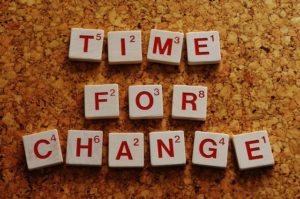
We all know by now that driving drowsy is dangerous and that we aren’t at our best when we haven’t had enough sleep. Just ask a trucking accident attorney! But when we think about our situations, somehow, denial often kicks in. We act as if we believe this is true for everyone else, but not for us. Of course, it is true for everyone, including us. Check out these five ways that a lack of sleep can decrease your efficacy and cause workplace problems.
Decision Making
A 2017 study showed that sleep-deprived participants were more likely to take big, all or nothing risks than their well-slept cohort. In another 2020 study, researchers found that “Under the effects of sleep loss, people habitually more reflective and cautious become more impulsive and prone to risk-taking during decision-making based on deliberative reasoning.” And when we think back, most of us have personal, anecdotal evidence of bad or higher risk decision making in our own lives when we haven’t had enough sleep. The question is, do you want you, or your workforce, to make crucial decisions under these conditions?
Attention
The symptoms of sleep deprivation are so similar to the symptoms of ADHD that the two are sometimes hard to differentiate. This is complicated because they are often comorbid, manifesting in the same person, and because there may be a link between disordered sleep and ADHD. Going without sufficient sleep has a high cost in terms of productivity and attention to detail.
Creativity and Problem-Solving
There have been many studies showing a link between sufficient sleep and creativity and problem-solving. Some theorize that REM sleep, in particular, allows the brain to create connections between ideas and combine them in new ways. Just think of all the anecdotal evidence of insights that came in dreams and the popular idiom “to sleep on it.”
Memory
Today, there is a consensus that memory consolidation takes place in both REM and Non-REM (NREM) sleep. In memory consolidation, the brain discards irrelevant information and focuses on holding onto essential knowledge and data. Getting enough sleep will help you learn, and sleeping well after learning will help you retain and understand that knowledge. One of the most common symptoms of sleep deprivation is difficulty with memory. Experts recommend that adults get seven to nine hours of sleep every night to perform at their best.
Mood
A lack of sleep can leave us easily irritated, stressed, and cranky, with a short fuse. These are not the qualities you want when trying to be an innovator, an inspirational manager, or a great salesperson. A chronic deficit of sleep damages our relationships, both personal and professional, and often leaves us vulnerable to burn out.
We live in an increasingly VUCA (Volatility, Uncertainty, Complexity, Ambiguity) world, and we need to be at our best to take on its many challenges and respond to its unpredictability. Getting enough sleep is certainly not easy in our fast-paced world, but we need to find a way to do it if we want optimal performance.








